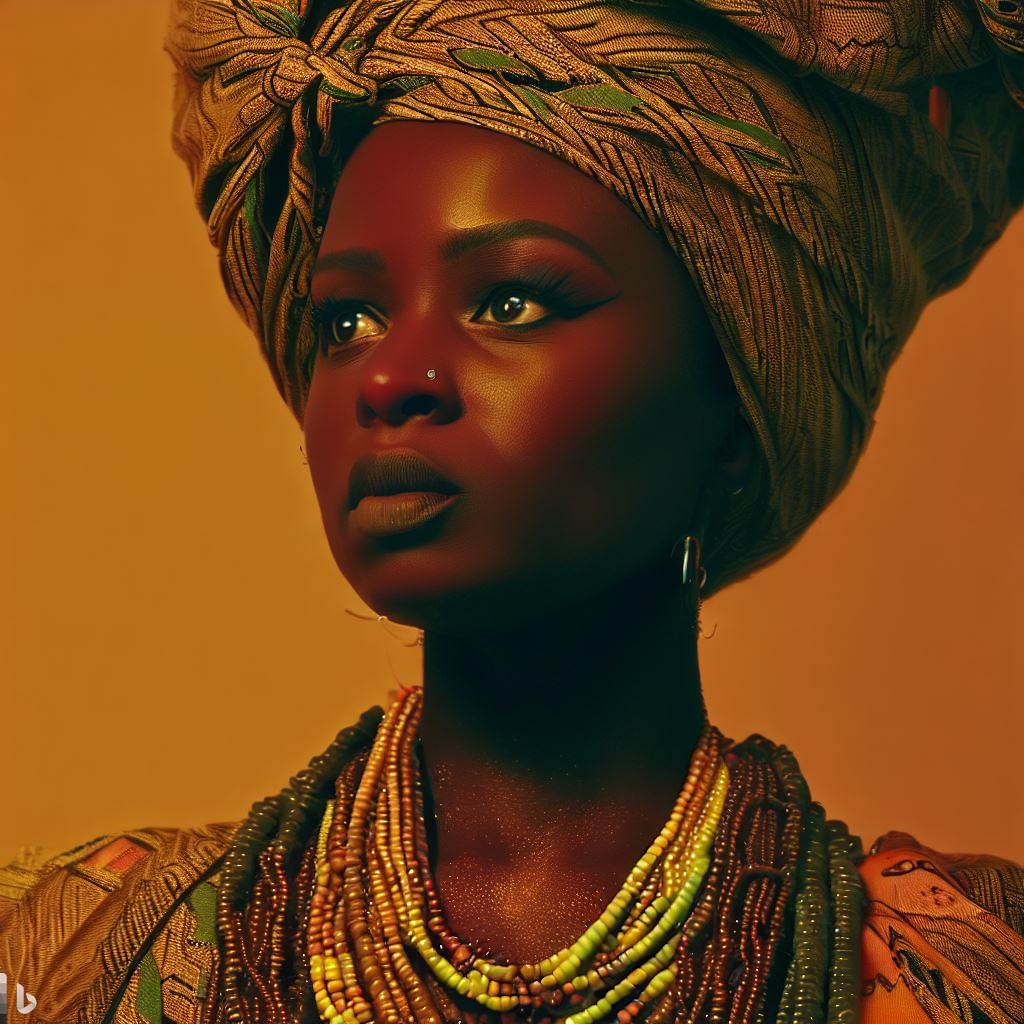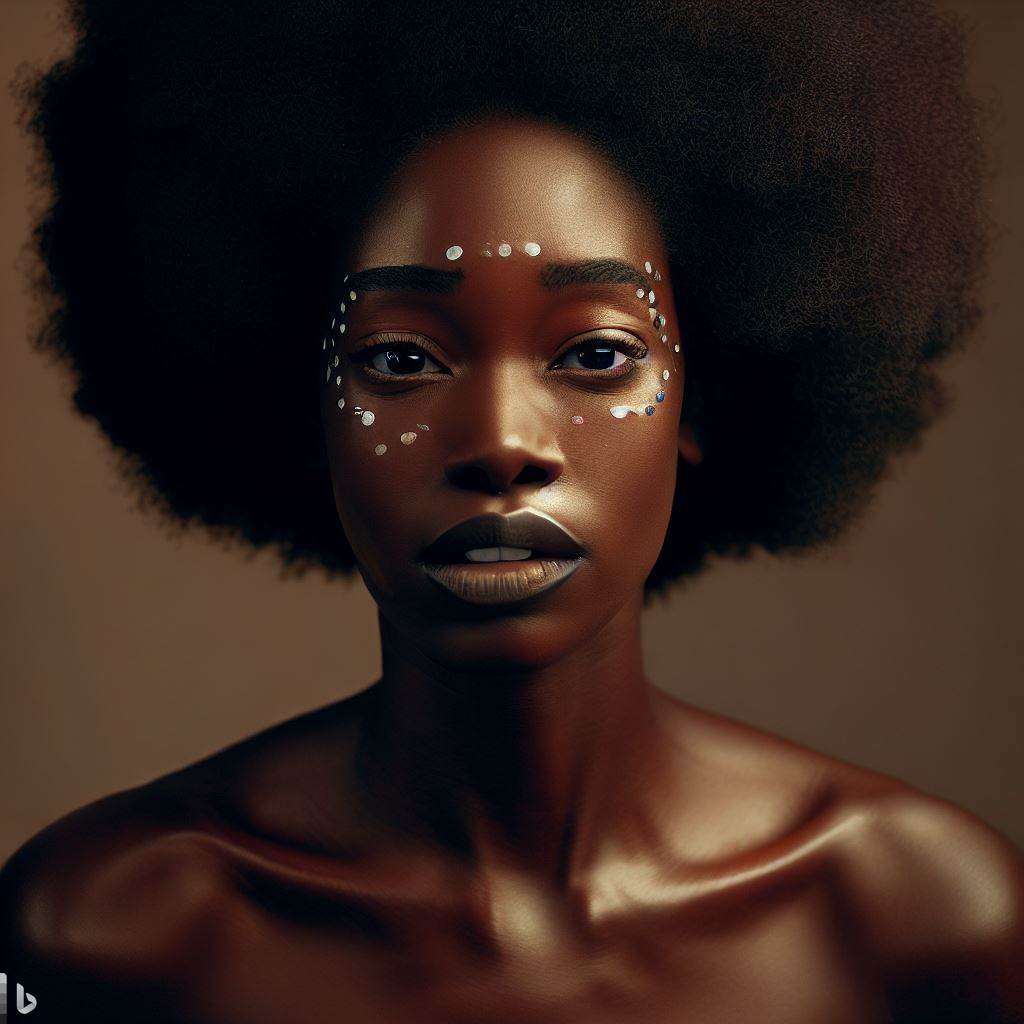Introduction
Monetizing music is crucial for songwriters in Nigeria to earn income from their work. Understanding how to monetize music in the digital age is essential for songwriters’ success.
Brief explanation of the topic – monetizing music for songwriters in Nigeria
Monetizing music is the process of generating income from your music. This can be done through a variety of channels, including streaming, digital downloads, live performances, and licensing.
Songwriters in Nigeria face a number of challenges in monetizing their music, but there are a number of strategies they can use to generate income from their work.
Importance of understanding the ways to monetize music in the digital age
The digital age has revolutionized the way that music is consumed and distributed. As a result, there are a number of new ways for songwriters to monetize their music.
It is important for songwriters to understand the different options available to them so that they can choose the best way to monetize their music.
Overview of what the blog post will cover
This blog post will provide an overview of the different ways that songwriters in Nigeria can monetize their music. It will also discuss some of the challenges that songwriters face and provide tips for overcoming these challenges.
This blog post will cover various ways songwriters in Nigeria can monetize their music effectively.
Overview of the Music Industry in Nigeria
Brief history and growth of the Nigerian music industry
- In the 1960s, Nigeria’s music industry began to take shape with the emergence of highlife music.
- Highlife music, influenced by Western genres like jazz and calypso, became popular across Nigeria.
- In the 1970s, the industry witnessed a boom with the rise of Afrobeat, pioneered by Fela Kuti.
- Fela Kuti’s Afrobeat combined traditional Nigerian music with elements of jazz, funk, and soul.
- Since then, Nigeria’s music industry has experienced consistent growth, attracting international recognition and investment.
Mention of successful Nigerian artists and their contribution to the industry
- Nigerian artists like Fela Kuti, King Sunny Ade, and Ebenezer Obey have made significant contributions to the industry.
- Fela Kuti’s activism through his music and King Sunny Ade’s innovative “Juju” genre paved the way for future artists.
- Contemporary Nigerian artists like Davido, Wizkid, and Burna Boy have achieved global success and brought Afrobeat to a wider audience.
- Their unique sound, blending Afrobeat with genres like hip hop and R&B, has propelled Nigerian music onto the international stage.
- These successful Nigerian artists have not only achieved commercial success but have also represented Nigerian culture on a global scale.
Emerging opportunities for songwriters in Nigeria
- The rise of streaming platforms like Spotify and Apple Music has opened up new avenues for songwriters to monetize their music.
- Nigerian songwriters can now reach a global audience without relying solely on traditional record deals.
- The demand for Nigerian music, especially Afrobeat and Afrobeats-inspired genres, is increasing worldwide.
- This presents opportunities for songwriters to collaborate with both Nigerian and international artists, expanding their reach.
- Additionally, the Nigerian music industry is evolving, with more emphasis on quality songwriting and storytelling.
- As a result, songwriters are valued for their ability to craft compelling lyrics and melodies that resonate with audiences.
- Songwriters can also explore sync licensing opportunities by having their music featured in movies, TV shows, and commercials.
- With the right networking and marketing strategies, songwriters in Nigeria can now earn a sustainable income from their craft.
Basically, Nigeria’s music industry has witnessed remarkable growth and success, thanks to the contributions of iconic artists and the evolving landscape of the industry.
Songwriters in Nigeria now have various opportunities to monetize their music, whether through streaming platforms or collaborations with both local and international artists.
The demand for Nigerian music globally, especially the popular Afrobeat genre, presents a favorable environment for songwriters to thrive and earn a sustainable income from their creative work.
Read: Impact of Afrobeat: Nigerian Songwriting Evolved
Understanding Copyright and Intellectual Property Rights
Definition and importance of copyright for songwriters
- Copyright is a legal protection that grants exclusive rights to creators of original works.
- For songwriters, copyright ensures their music is protected from unauthorized use or reproduction.
- It gives songwriters control over their music, including the right to perform, reproduce, distribute, or license it.
- Copyright is crucial for songwriters as it provides a legal framework to monetize their music.
- It allows songwriters to collect royalties when their music is used, ensuring them a fair income.
Explanation of intellectual property rights and their role in protecting songwriters’ work
- Intellectual property (IP) rights are legal rights that protect the creations of songwriters.
- They cover a broad range of creative works, including musical compositions.
- IP rights provide songwriters with the exclusive use and control over their creations.
- They enable songwriters to monetize their work by granting exclusive licenses or selling their rights.
- IP rights play a vital role in promoting creativity and incentivizing songwriters to create new music.
Steps to copyrighting musical compositions in Nigeria
- Create a tangible copy of your musical composition, whether in written or recorded form.
- Register your work with the Nigerian Copyright Commission (NCC) by submitting the necessary application.
- Include all relevant information, such as the title, lyrics, melodies, and any additional documentation.
- Pay the required fees and obtain a certificate of registration from the NCC.
- Display the copyright symbol (©) along with your name and the year of first publication on your music.
- Consider seeking legal advice or assistance to ensure all copyright requirements are met accurately.
- Regularly monitor and enforce your rights, taking action against any unauthorized use or infringement.
By understanding copyright and intellectual property rights, Nigerian songwriters can protect their creative output and ensure they can monetize their music effectively.
It is essential for songwriters to familiarize themselves with the necessary steps to copyright their musical compositions.
Doing so empowers them to exercise control over their work and receive fair compensation for its use.
Read: A Guide to Copyright Laws for Nigerian Songwriters
Ways to Monetize Music as a Songwriter in Nigeria
Traditional methods of earning money through music (e.g., live performances, music sales)
- Live performances: Songwriters can earn money by performing at concerts, festivals, and gigs.
- Music sales: Selling physical copies of music, such as CDs or vinyl records, can generate revenue.
- Merchandise: Creating and selling branded merchandise like t-shirts, caps, or accessories can be profitable.
- Licensing: Licensing music for use in movies, TV shows, commercials, or video games can be financially rewarding.
Introduction to digital platforms and streaming services for music monetization
- Streaming services: Distributing music on popular platforms like Spotify, Apple Music, and Deezer can generate revenue based on streams.
- YouTube monetization: Uploading original music to YouTube and enabling monetization allows for ads to be placed on videos, earning money.
- Digital downloads: Selling digital copies of songs or albums through platforms like iTunes or Bandcamp can provide a steady income.
Importance of building a brand and engaging with fans
- Social media presence: Building a strong online presence through platforms like Facebook, Instagram, and Twitter helps reach and engage fans.
- Connecting with fans: Interacting with fans through comments, messages, and live streams helps foster a loyal fanbase.
- Brand partnerships: Collaborating with brands that align with the songwriter’s image can lead to sponsorship deals and endorsements.
Exploring sync licensing and music placements in media
- Sync licensing: Licensing music for use in movies, TV shows, commercials, or video games can provide substantial royalties.
- Music placements: Getting songs placed in popular TV shows, movies, or advertisements increases exposure and potential revenue.
- Soundtrack creation: Composing music specifically for film or TV soundtracks can be a lucrative avenue for songwriters.
By utilizing traditional methods, embracing digital platforms, building a brand, and seeking sync licensing opportunities, Nigerian songwriters can maximize their revenue streams and monetize their music effectively.
It is crucial for aspiring artists to explore all available avenues and stay adaptable in an ever-evolving music industry.
Read: Successful Women Songwriters in the Nigerian Scene
Strategies for Successful Music Monetization
Building an online presence through social media and websites
- Utilize platforms like Facebook, Instagram, and Twitter to engage with fans and promote your music.
- Create a professional website that showcases your music, biography, tour dates, and contact information.
- Regularly release content such as singles, music videos, and behind-the-scenes footage to keep your audience engaged.
- Collaborate with influencers and popular social media accounts to expand your reach.
Collaboration and networking opportunities for songwriters
- Attend industry events, conferences, and songwriting camps to connect with other songwriters and industry professionals.
- Join online forums and communities where songwriters share their work and collaborate.
- Consider co-writing with other songwriters to bring fresh ideas and perspectives to your music.
- Network with producers, publishers, and artists to explore potential collaborations and song placements.
Importance of performance royalties and joining a music collective
- Register your songs with the appropriate performance rights organization (PRO) to collect royalties from live performances, radio plays, and streaming services.
- Join a music collective such as the Performing Musicians Employers’ Association of Nigeria (PMAN) to protect your rights and maximize your earning potential.
- Ensure that your setlists are submitted to your PRO to ensure accurate royalty distribution.
- Stay informed about changes in copyright laws and royalty rates to protect your interests.
Generating income through merchandise sales and live performances
- Create and sell merchandise such as t-shirts, posters, and CDs to provide additional revenue streams.
- Design merchandise that reflects your brand and resonates with your fans.
- Book live performances at venues, festivals, and events to showcase your talent and earn money through ticket sales and performance fees.
- Engage with your audience during live shows to build a strong fan base and increase merchandise and album sales.
By implementing these strategies, Nigerian songwriters can effectively monetize their music and build successful careers in the music industry.
Read: How to Break into Songwriting in Nigeria Today

Challenges and Solutions in Music Monetization for Songwriters in Nigeria
Lack of infrastructure and piracy issues in the Nigerian music industry
- The Nigerian music industry faces significant challenges due to a lack of infrastructure.
- Musicians and songwriters struggle to monetize their work effectively.
- One major issue is piracy, which significantly impacts revenue streams for songwriters.
- Piracy not only affects CD sales but also digital downloads and streaming platforms.
- The lack of proper copyright laws and enforcement make it difficult for songwriters to protect their work.
Overview of recent efforts to combat piracy and improve revenue streams
- Recently, the Nigerian government has taken steps to combat piracy in the music industry.
- They have established specialized agencies to enforce copyright laws and tackle piracy issues.
- This includes raiding markets and shops to confiscate pirated CDs and taking legal action against offenders.
- Furthermore, digital streaming platforms like Spotify and Apple Music have entered the Nigerian market.
- These platforms provide a legal and convenient way for songwriters to distribute and monetize their music.
Importance of education and support systems for songwriters
- Education on music monetization and copyright laws is crucial for songwriters in Nigeria.
- They need to understand the importance of registering their songs and obtaining proper licenses.
- Mentorship programs and workshops can provide guidance on monetizing music effectively.
- Songwriters should also seek legal advice to protect their work and understand their rights.
- Collaborating with industry professionals can help songwriters navigate the complex music monetization landscape.
Essentially, songwriters in Nigeria face numerous challenges when it comes to monetizing their music. The lack of infrastructure and piracy issues in the music industry hinder their ability to maximize revenue streams.
However, recent efforts by the Nigerian government and the emergence of digital streaming platforms offer some solutions.
Education and support systems are also crucial for songwriters to understand and navigate the music monetization landscape effectively.
By addressing these challenges and embracing available opportunities, Nigerian songwriters can overcome hurdles and successfully monetize their music.
Uncover the Details: Building a Career in Nigeria’s Animation Industry
Case Studies: Successful Nigerian Songwriters
Introduction to Notable Nigerian Songwriters
- Burna Boy – With his unique blend of Afrobeat and reggae, Burna Boy has emerged as one of Nigeria’s most successful songwriters.
- Tiwa Savage – Known as the “Queen of Afrobeats,” Tiwa Savage has won numerous awards for her songwriting and vocal talent.
- Davido – Davido’s catchy melodies and relatable lyrics have made him a favorite among Nigerian music lovers.
- Wizkid – Wizkid’s international collaborations and infectious tunes have earned him a global fan base.
Analysis of Their Monetization Strategies and Pathways to Success
Burna Boy
- Burna Boy collaborated with Stormzy and Ed Sheeran, expanding his reach and generating revenue from streaming and royalties.
- He created merchandise like clothing and accessories for fans to purchase, supporting his brand.
- Burna Boy performs at sold-out concerts and tours, earning income from ticket sales and sponsorships.
- He partnered with global brands like Pepsi and Nike, boosting income and gaining wider exposure.
Tiwa Savage
- Tiwa Savage wrote songs for other artists, earning royalties and establishing herself as a sought-after songwriter.
- She invested in high-quality music videos, generating revenue from ads and increasing popularity.
- Tiwa Savage actively engaged with fans on social media, promoting music, merchandise, and shows.
- This expanded her fan base and drove sales.
Davido
- Davido collaborated with international artists like Chris Brown and Meek Mill, reaching a wider audience and gaining exposure.
- He leveraged streaming platforms like Spotify and Apple Music, driving revenue through millions of streams.
- Davido’s philanthropic efforts endeared him to fans, attracting sponsorships and partnerships that monetized his music.
Wizkid
- Wizkid’s music featured in popular Nigerian movies, generating income through royalties and licensing deals.
- He headlined major music festivals, earning substantial fees for performances.
- Wizkid collaborated with brands like Dolce & Gabbana and Nike, launching limited edition products and monetizing his image.
Lessons Learned and Tips for Aspiring Songwriters
- Develop a Unique Style: Find your own voice and style that sets you apart from others in the industry.
- Collaborate with Others: Collaborating with other artists opens doors to new opportunities and expands your fan base.
- Diversify Your Income Streams: Explore different avenues for monetization, such as merchandise, endorsements, and songwriting for others.
- Engage with Fans: Interact with your fans on social media, engage in conversations, and build a loyal and supportive fan base.
- Invest in Quality: Invest in high-quality music videos and production to enhance your image and stand out from the competition.
- Be Business-minded: Treat your music career as a business, carefully managing your finances and seeking professional advice where necessary.
- Constantly Evolve: Stay adaptable and open to change, as trends and consumer preferences can shift quickly in the music industry.
In essence, these Nigerian songwriters have successfully monetized their music through various strategies such as collaborations, merchandise, endorsements, and performances.
Aspiring songwriters can learn from their success by developing a unique style, diversifying income streams, and engaging with their fans.
The key is to combine talent with business acumen and stay adaptable in an ever-changing industry.
Conclusion
Monetizing music is crucial for songwriters in Nigeria as it provides them with financial stability and recognition.
Songwriters are encouraged to explore various avenues of monetization, such as streaming, licensing, and live performances.
Monetizing your music as a songwriter in Nigeria can be challenging, but it is possible.
By understanding the different ways to monetize your music and using the tips provided in this blog post, you can start generating income from your work.
Songwriters must take control of their music careers and actively pursue opportunities for monetization.
With determination and strategic planning, Nigerian songwriters can thrive in the music industry and achieve success.




